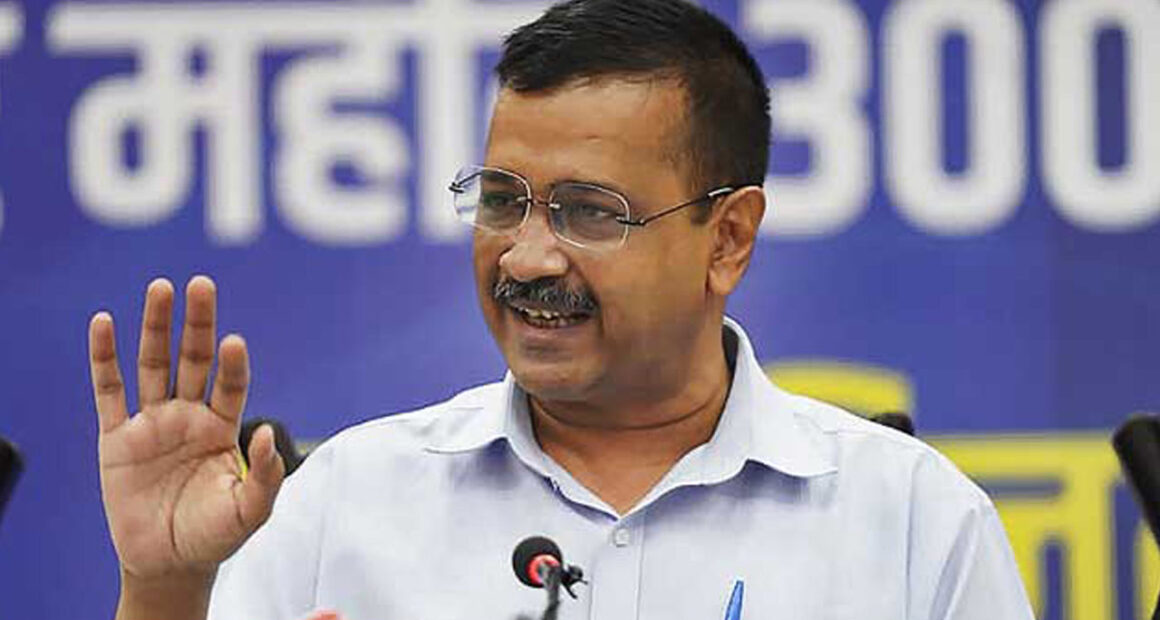In a recent statement, Delhi Chief Minister Arvind Kejriwal slammed the Modi government for its decision to implement the Citizenship Amendment Act (CAA) before the upcoming Lok Sabha elections. Kejriwal described this move as ‘dirty vote bank politics’ that is aimed at dividing people along communal lines.
The Citizenship Amendment Act has been a controversial piece of legislation since it was first introduced by the BJP-led government. The act offers citizenship to non-Muslim immigrants from neighboring countries such as Pakistan, Bangladesh, and Afghanistan who arrived in India before 2015. Critics argue that the act discriminates against Muslims and violates the secular principles of the Indian constitution.
Kejriwal’s criticism of the timing of CAA implementation reflects his concerns about the impact it could have on communal harmony in India. By implementing such a divisive law just before an important election, he believes that the government is playing on religious sentiments to win votes.
Opposition to CAA
Kejriwal is not alone in his opposition to the Citizenship Amendment Act. Several state governments, political parties, and civil society organizations have raised their voices against the legislation. Protests have erupted across India, with many citizens expressing their outrage over what they see as a discriminatory law.
The main argument against CAA is that it undermines India’s secular ethos by favoring certain religious groups over others. By excluding Muslims from its provisions, critics argue that the act goes against the fundamental principles of equality and non-discrimination enshrined in the constitution.
Impact on Elections
With Lok Sabha elections looming on the horizon, the timing of CAA implementation has raised eyebrows among many politicians and analysts. Some believe that the government’s decision to push through such a controversial law just months before polling indicates its willingness to polarize voters along religious lines for electoral gains.
Kejriwal’s denunciation of this strategy as ‘dirty vote bank politics’ underscores his commitment to inclusive governance and secular values. He believes that political parties should focus on development issues rather than stoking communal tensions for electoral advantage.
Critics vs Supporters
While critics like Kejriwal condemn CAA as discriminatory and divisive, supporters argue that it provides much-needed relief to persecuted minorities from neighboring countries. They contend that religious minorities like Hindus, Sikhs, Buddhists, Jains, Parsis, and Christians face persecution in Islamic-majority nations and deserve protection in India.
The debate over CAA has become increasingly polarized in recent months, with both sides digging in their heels on their respective positions. The Supreme Court is currently hearing multiple petitions challenging the constitutionality of the act, adding another layer of complexity to an already contentious issue.
Conclusion
In conclusion, Arvind Kejriwal’s condemnation of CAA implementation as ‘dirty vote bank politics’ highlights his principled stand against divisive policies that seek to exploit religious identities for electoral gain. As Delhi gears up for assembly elections next year, his words serve as a reminder of the importance of upholding secular values in our democracy.
We must remain vigilant against attempts to sow discord among communities for political ends and strive towards building a more inclusive society based on principles of equality and justice for all.
